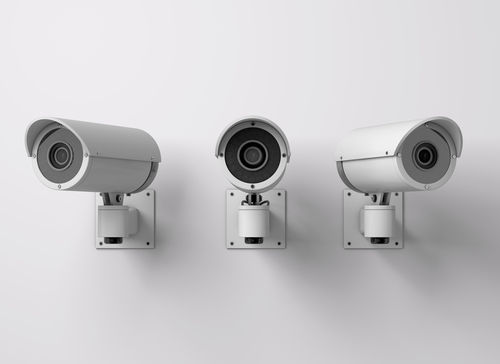
A BEGINNER’S GUIDE TO CHOOSING CCTV SURVEILLANCE CAMERAS
If you’ve ever browsed through CCTV surveillance camera brochures with their dozens of options, product shots, specifications and varying prices, you may have been tempted to slap it shut and leave upgrading your security system for another day.
The vast array of CCTV surveillance cameras and recorders on the market can be daunting, making it difficult to decide which system would be best suited to your home or business environment.
We have unpacked some of the basics of CCTV surveillance cameras to shed light on ten factors to consider before investing in a security camera system.
-
Cheap is expensive
Try to buy the best value for money CCTV surveillance camera system within your personal or business budget. It’s always wiser to invest in a good quality, small, entry-level system that allows you to add more cameras later on, than to rush out and buy an unbranded cheap camera that could lead to buyer’s remorse.
A reputable security company will be able to offer you a range of camera and recorder options made by reliable manufacturers, including brands such as Hikivision and ZKTeco
-
Check the warranty
Some small retailers selling unbranded cameras may only offer a statutory six month product guarantee at best, which you might find yourself fighting for, if the camera fails within that time frame. A reputable security company will sell CCTV surveillance cameras with a warranty of up to three years and offer either a self-install option or a professional installation service.
-
Understand basic camera capabilities
When selecting CCTV cameras it’s important to consider lens size, wide angle degree and memory for data storage. For every millimetre of lens size, the rule of thumb is that this is how far away in meters the camera will be able to view its subject (focal length). The degree of a wide angle lens will determine the field of vision and shorten the focal length as the angle gets wider.
For example, a basic 60 degree wide angle, 4 mm lens will effectively identify a human target at up to 4 meters, but it will not have enough range to view the neighbour’s property to the left or right. As the lens size increases the field of vision to the left and right will decrease, while the range at which a human target can be identified will increase.
Cameras come with a range of data storage sizes from 1TB. The storage capacity can be increased by additional hard drives, or network attached storage devices to an unlimited capacity.
-
Clarify camera type
There are three types of CCTV surveillance cameras on the market, from the most affordable entry level analogue cameras to High Definition (HD) and Internet Protocol (IP) cameras at the top end of the market. Fortunately, camera prices have dropped significantly with the advance of technology. This has brought entry-level HD and IP cameras into the realm of the home and small to medium-sized business budget.
-
Comparing Analogue, HD or IP cameras
Deciding whether to buy more affordable entry-level analogue cameras or if you should go with HD or IP cameras instead, depends on the quality of the image you desire and your present and long-term security needs. A basic analogue camera offers a low-resolution image suitable for detection of people and to monitor areas. An HD camera provides a crisp high-resolution image suitable for identifying numbers and characters, or for evidential recording for legal purposes.
A higher resolution offers a far more enhanced picture, which makes it possible to zoom in digitally and retain image quality to identify subjects and details such as vehicle number plates. The benefit of zooming in is that this intelligence can be shared with police investigators and security companies.
CCTV cameras can be attached to your home or business network to sound the alarm of a security breach and transmit data such as images to a security providers’ control centre via a broadband connection, such as wireless, GSM or ADSL. Breaches can be picked up via outdoor passives and beams that have been integrated with the camera into the home or business alarm system. Small to medium-sized businesses tend to opt for high-end Turbo HD cameras and entry-level IP cameras.
-
Decide what you want the camera to see
Do you want the camera to be able to see a vehicle outside the front driveway gate or a pedestrian ringing the bell? We often compare the ability of our human sight to what we expect cameras to do. While there is no camera that can perfectly mimic the dynamic range and depth of vision of the human eye, advances in technology provide solutions for dynamic range, 360-degree vision and the handling of different lighting conditions.
-
Select the best camera position
Deciding where to place your first camera will largely depend on the topography of your home or business property and your security needs. Usually, the first camera is installed in a position such as near the front door or gate, to gather information about people or vehicles entering, followed by additional cameras to cover “weak spots”.
For example, near a back wall that runs parallel to an alley or on the darkest side of your house. Ideally, covering the entire perimeter of the property with cameras will offer the security of an early warning system – if the camera has been connected to outdoor beams – and of being able to investigate security breaches without peering out of a window.
-
Consider need for support lighting
CCTV surveillance cameras can record colour during the day but at night, unless sufficient support lighting has been set up, they switch to black and white. It’s important to provide support outdoor lighting, such as an LED lamp, for colour definition, so that a meaningful intelligence report can be written up describing, for example, the colour of vehicles and clothing of intruders. Low light cameras that don’t need support lighting are available but are far more expensive, making it cost-effective to use lighting.
-
Consider all installation costs
Selecting the correct type of CCTV surveillance camera is just part of the process of shopping around. Your research should also include considering the cost of recorders and peripherals such as cables, connectors, an uninterrupted power supply and the cost of labour and commissioning of the unit. It is important to ask questions about the total costs of purchasing and installing a camera at the outset, to avoid any surprises later on.
-
Ask a security professional for advice
Before selecting a CCTV surveillance camera for your home or business, seek the advice of a security professional. They will be able to assess your property and show you recorded footage from different types of cameras, that will enable you to get the full picture on quality and pricing before you commit to a decision.
Grasping the wide range of camera technology on the market can take some time and there is so much more the latest cameras can do to enhance security. Would you like to know more about advanced capabilities or do you have any questions regarding how CCTV surveillance cameras can enhance your home or business’s security system?
Our sales and technical professionals are available to assist with any questions related to CCTV surveillance cameras, and can be reached on +234 811-367-7777, +234 811-267-7777 or info@securetech.com.ng, you can also connect with us on Twitter, Facebook, Instagram and Linkedin



